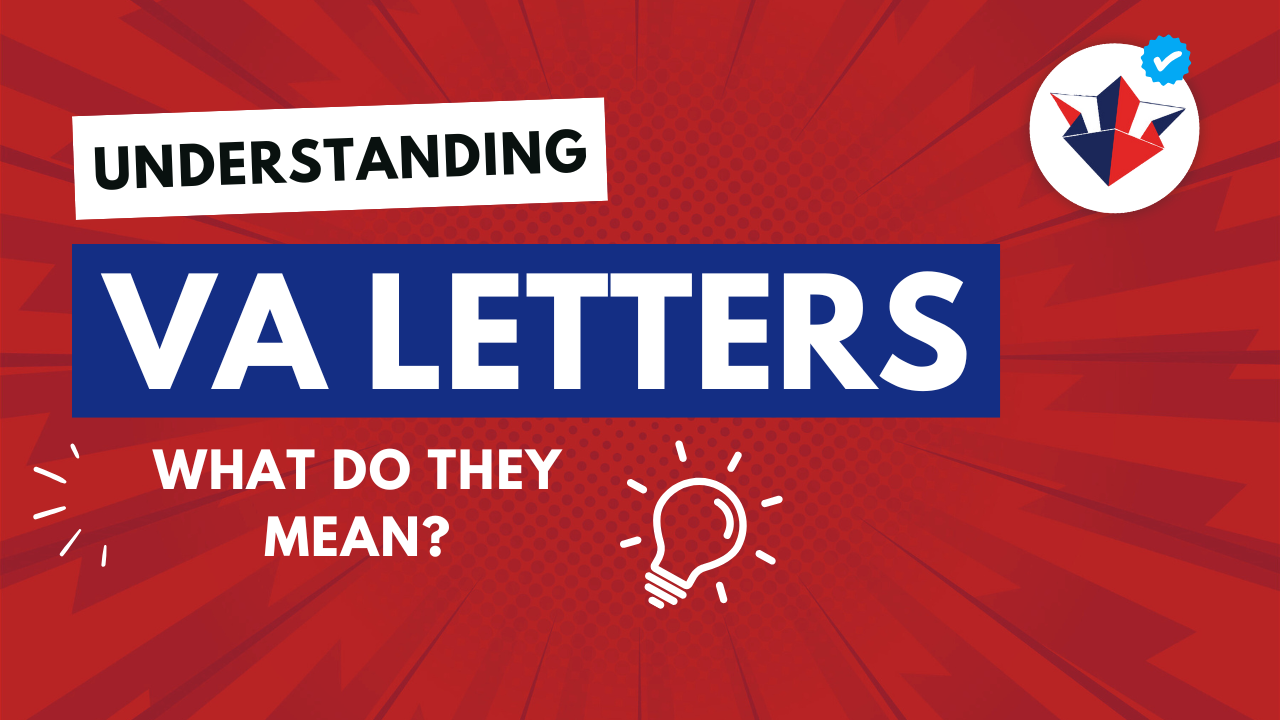Understanding Your VA Letters: What They Mean and What You Should Do
At VETCOMM US, we’re committed to educating veterans on all things VA so you can better understand your benefits and access them efficiently. Gaining clarity on these important details can make a big difference, not just in peace of mind, but in saving time and money too.
This guide outlines the five most common VA letters, explains their purpose and helps you understand how to respond to each one appropriately.
1. VA Acknowledgement Letter
The Acknowledgement Letter is typically the first letter a veteran will receive after submitting a disability claim. It serves as confirmation that the VA has officially received the claim and has initiated the review process.
What You Should Do:
No immediate action is usually required unless the letter specifically outlines additional steps. It is advisable to retain a copy for your records and continue monitoring your claim status.
2. VA Development Letter
The Development Letter, often referred to as a Request for Evidence (RFE), is issued when the VA requires additional documentation to support a claim. This may include service treatment records, private medical records, lay statements (buddy letters), or supplemental VA forms.
What You Should Do:
It’s important to respond by the deadline listed in the letter. Not submitting the requested information on time could lead to delays or even a denial of your claim. If you're unsure how to gather or submit the necessary documents, you don't have to navigate it alone.
Connect with VETCOMM US for personalized guidance and support. We’re here to help you move through the process with confidence.
3. C&P Exam Notification
This letter serves as notification for a scheduled Compensation and Pension (C&P) examination. The C&P exam is a key step in the disability claims process, allowing the VA to evaluate the severity and service connection of a veteran’s medical condition(s).
What You Should Do:
Attendance at the scheduled exam is critical. Veterans should arrive on time, provide honest and detailed descriptions of their symptoms and bring any relevant documentation. Missing the exam can significantly delay or jeopardize the outcome of a claim.
VETCOMM US offers both one-on-one and group C&P exam prep sessions. You’ll have the opportunity to ask questions, prepare with confidence and connect with fellow veterans who understand the process.

4. VA Decision Letter
The Decision Letter outlines the VA’s official ruling on your disability claim. It details which conditions were approved, denied or deferred and includes individual disability ratings as well as your overall combined rating.
What You Should Do:
Take time to review the decision thoroughly. If a condition was denied or you believe your rating is too low, you have the right to appeal. Appeal options include filing a supplemental claim, requesting a higher-level review or submitting a Notice of Disagreement to request a Board appeal.
If you're unsure what to do next, VETCOMM US can help you explore your appeal options and choose the path that makes the most sense for your situation. Our team will walk you through the process and ensure you understand each step clearly.
5. VA Award Letter
The Award Letter is sent when your VA benefits have been granted. It includes important details like your monthly compensation amount, the effective date of your payments, any back pay awarded and an estimated timeline for disbursement.
What You Should Do:
Keep this letter in a safe place. You may need it when applying for VA healthcare, housing benefits, financial services or other veteran-related programs.
Conclusion
Receiving and understanding letters from the VA is a key part of successfully managing your benefits. Each letter contains important information that can directly affect your eligibility, compensation or claim timeline. If you are ever uncertain about what a letter means or how to respond, VETCOMM US is available to provide clarity and support throughout the process.
Stop waiting—start your VA rating journey today. Visit VETCOMM US to get the support you need and take control of your benefits.

